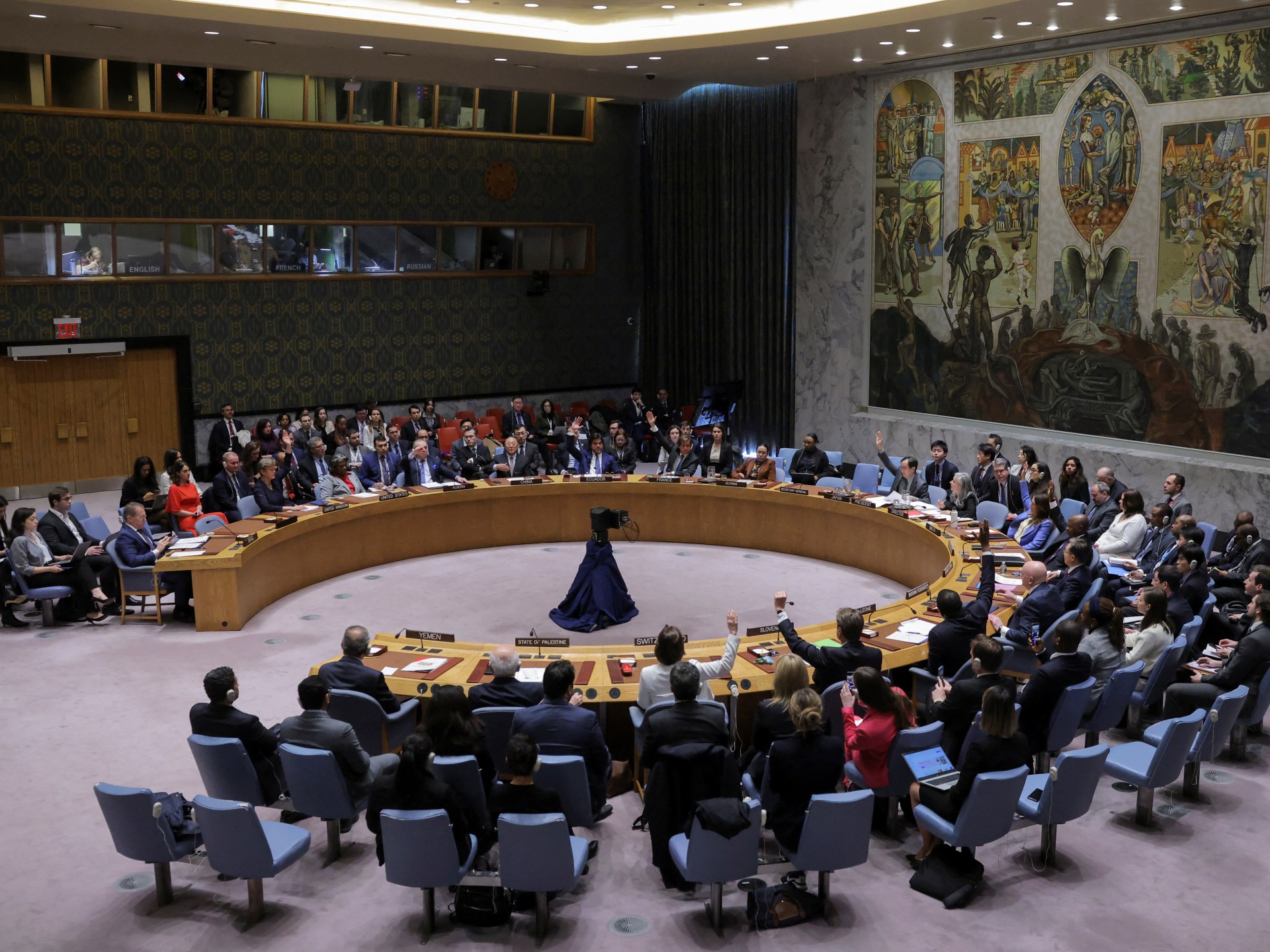Security Council resolution calls for an immediate ceasefire in the Gaza Strip during the month of Ramadan (Reuters)
The adoption by the UN Security Council on Monday of a resolution calling for an immediate ceasefire in the Gaza Strip sparked widespread reactions, ranging from welcome to demands for urgent implementation, while Israel denounced the resolution and announced the cancellation of its delegation’s visit to Washington due to the US representative’s refusal to use her veto power against the resolution. .
The following are the most prominent reactions to the Security Council resolution:
Netanyahu
Prime Minister Benjamin Netanyahu canceled the visit of an Israeli delegation to Washington to discuss the planned attack on Rafah in the southern Gaza Strip. His office said in a statement, “The United States did not use its veto today against the new text that calls for a ceasefire without the condition of releasing the kidnappers.”
The statement added that this is "a clear retreat from the firm American position in the Security Council since the beginning of the war," which "gives Hamas hope that international pressure will allow it to obtain a ceasefire without releasing our kidnappers."
Ben Ghafir
Israeli National Security Minister Itamar Ben Gvir said that the Security Council resolution "proves that the United Nations is anti-Semitic and its Secretary-General is anti-Semitic and encourages Hamas."
Ben Gvir believed that US President Joe Biden's failure to use the veto "proves that he does not prioritize Israel's victory over political considerations," calling for increased escalation and continued fighting "at any cost to defeat Hamas."
Smotrich
Israeli Finance Minister Bezalel Smotrich said that Washington's failure to use the veto is in the interest of Hamas and harms efforts to return the "abductees," calling at the same time on Israeli leaders to "rise above their differences."
Gallant
Israeli Defense Minister Yoav Galant said that stopping the war in the Gaza Strip “may bring a war closer to the northern front,” and he believed that “there is no moral right for anyone to stop the war without liberating the kidnapped people.”
United State
The United States expressed its disappointment at the Israeli Prime Minister's decision to cancel his delegation's visit to Washington, and White House National Security Communications Advisor John Kirby said, "Our abstention from voting on the Security Council resolution does not represent a shift in our policy."
He added, "We did not vote in favor of the resolution and merely abstained from voting because the final version does not include condemning Hamas."
The US State Department described the decision to cancel the Israeli delegation's visit as "surprising and unfortunate," and said that it abstained from voting on the Security Council resolution because it only "does not condemn the Hamas operation on October 7th."
Reuters quoted an American official as saying that Washington is disturbed by the Israeli response, and that President Joe Biden is not planning to contact Netanyahu at this time.
European Union
European Union foreign policy chief Josep Borrell welcomed the Security Council's decision, stressing that it requires "urgent implementation" by everyone.
Guterres
United Nations Secretary-General António Guterres stressed the necessity of implementing the ceasefire resolution in Gaza, saying that "failure to implement it would be unforgivable."
agitation
The Islamic Resistance Movement (Hamas) welcomed the Security Council's decision, and called on the Council to pressure the occupation "to adhere to the ceasefire and stop the war of genocide and ethnic cleansing against our people."
The movement stressed the need to reach a permanent ceasefire that would lead to the withdrawal of all occupation forces and the return of the displaced. It also confirmed its readiness to engage in an immediate prisoner exchange process that would lead to the release of prisoners on both sides.
Algeria
Algeria's representative to the United Nations, Ammar Ben Jama, called on the UN Security Council to implement its decision to cease fire in Gaza.
Bin Jama said, “Finally, the Security Council is rising to the extent of the responsibilities that fall on it,” noting that the adoption of this resolution “is only the beginning towards realizing the hopes of the Palestinian people.”
Egypt
Egypt called for the immediate implementation of the Security Council resolution, and said in a statement by the Ministry of Foreign Affairs that “despite the imbalance in the resolution as a result of its limited time frame and the obligations included in it, it represents an important and necessary first step to stop the bloodshed.”
Saudi Arabia
Saudi Arabia welcomed the Security Council’s decision, and stressed in a statement to the Ministry of Foreign Affairs the importance of “the parties’ compliance with their obligations under international law, and expanding the scope of the flow of humanitarian aid to civilians in the entire Gaza Strip.”
Türkiye
The Turkish Foreign Ministry described the Security Council's resolution as a "positive step," and the ministry's spokesman said, "We hope that Israel will fulfill the requirements of this resolution as soon as possible."
Source: Al Jazeera + agencies

